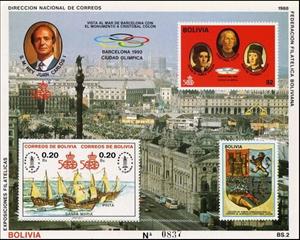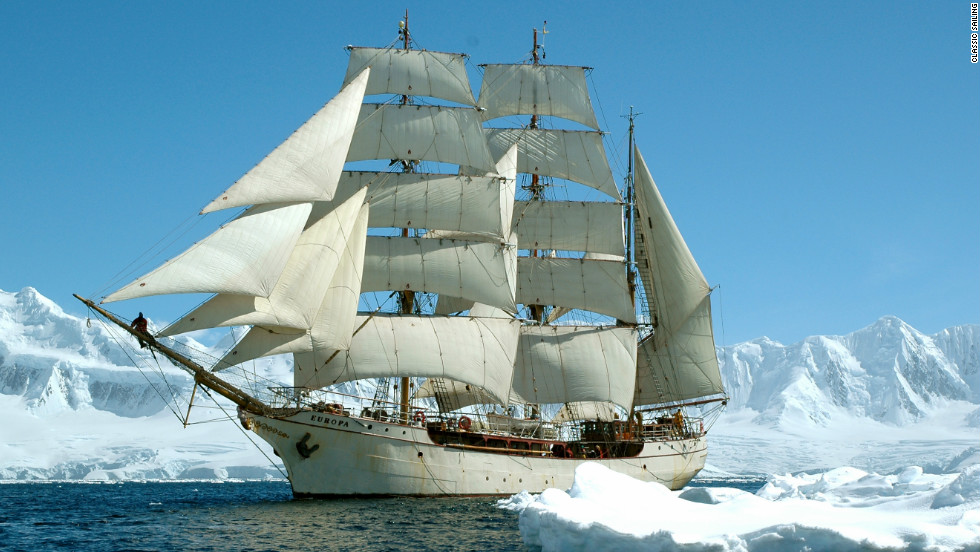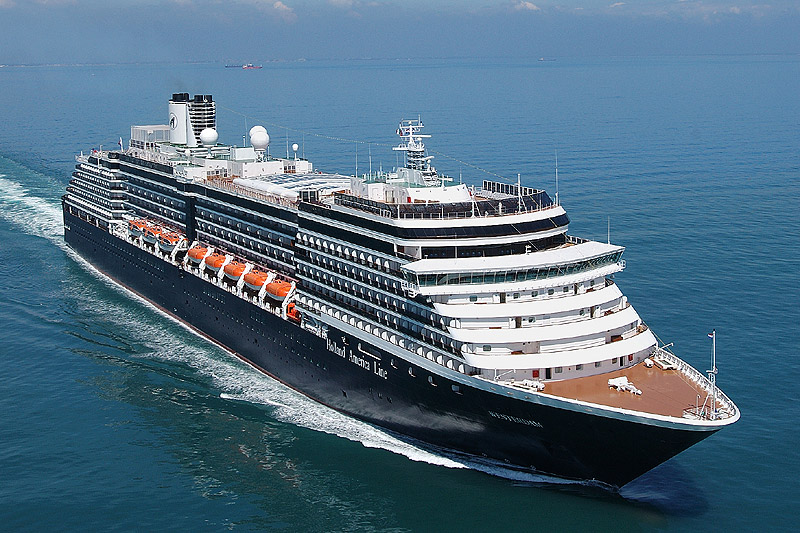Souvenir Sheet: Olympic Games Barcelona 1992 (Bolivia 1988)
Olympic Games Barcelona 1992 (Bolivia 1988)
15 August (Bolivia ) within release Olympic Games Barcelona 1992 goes into circulation Souvenir Sheet Olympic Games Barcelona 1992 face value 2 Bolivian boliviano
| Souvenir Sheet Olympic Games Barcelona 1992 in catalogues | |
|---|---|
| Michel: | Mi: BO BL174 |
Souvenir Sheet is horizontal format.
Souvenir Sheet Olympic Games Barcelona 1992 it reflects the thematic directions:
Famous People refers to the fame and public attention accorded by the mass media to individuals or groups or, occasionally, animals, but is usually applied to the persons or groups of people (celebrity couples, families, etc.) themselves who receive such a status of fame and attention. Celebrity status is often associated with wealth (commonly referred to as fame and fortune), while fame often provides opportunities to make money.
A head of state (or chief of state) is the public persona that officially represents the national unity and legitimacy of a sovereign state. In some countries, the head of state is a ceremonial figurehead with limited or no executive power, while in others, the head of state is also the head of government. In countries with parliamentary governments, the head of state is typically a ceremonial figurehead that does not actually guide day-to-day government activities and may not be empowered to exercise any kind of secular political authority (e.g., Queen Elizabeth II as Head of the Commonwealth). In countries where the head of state is also the head of government, the president serves as both a public figurehead and the actual highest ranking political leader who oversees the executive branch (e.g., the President of the United States).
King is the title given to a male monarch in a variety of contexts. The female equivalent is queen regnant (while the title of queen on its own usually refers to the consort of a king). In the context of prehistory, antiquity and contemporary indigenous peoples, the title may refer to tribal kingship. Germanic kingship is cognate with Indo-European traditions of tribal rulership (c.f. Indic rājan, Gothic reiks, and Old Irish rí, etc.) In the context of classical antiquity, king may translate Latin rex or either Greek archon or basileus. In classical European feudalism, the title of king as the ruler of a kingdom is understood as the highest rank in the feudal order, potentially subject, at least nominally, only to an emperor (harking back to the client kings of the Roman Empire). In a modern context, the title may refer to the ruler of one of a number of modern monarchies (either absolute or constitutional). The title of king is used alongside other titles for monarchs, in the West prince, emperor, archduke, duke or grand duke, in the Middle East sultan or emir; etc. Kings, like other royalty, tend to wear purple because purple was an expensive color to wear in the past.
The modern Olympic Games or Olympics (French: Jeux olympiques) are leading international sporting events featuring summer and winter sports competitions in which thousands of athletes from around the world participate in a variety of competitions. The Olympic Games are considered the world's foremost sports competition with more than 200 nations participating. The Olympic Games are held every four years, with the Summer and Winter Games alternating by occurring every four years but two years apart.
A modern sailing ship or sailship is any large wind-powered vessel. Traditionally a sailing ship (or simply ship) is a sailing vessel that carries three or more masts with square sails on each. Large sailing vessels that are not ship-rigged may be more precisely referred to by their sail rig, such as schooner, barque (also spelled "bark"), brig, barkentine, brigantine or sloop. There are many different types of sailing ships, but they all have certain basic things in common. Every sailing ship has a hull, rigging and at least one mast to hold up the sails that use the wind to power the ship. The crew who sail a ship are called sailors or hands. They take turns to take the watch, the active managers of the ship and her performance for a period. Watches are traditionally four hours long. Some sailing ships use traditional ship's bells to tell the time and regulate the watch system, with the bell being rung once for every half hour into the watch and rung eight times at watch end (a four-hour watch). Ocean journeys by sailing ship can take many months, and a common hazard is becoming becalmed because of lack of wind, or being blown off course by severe storms or winds that do not allow progress in the desired direction. A severe storm could lead to shipwreck, and the loss of all hands. Sailing ships are limited in their maximum size compared to ships with heat engines, so economies of scale are also limited. The heaviest sailing ships (limited to those vessels for which sails were the primary means of propulsion) never exceeded 14,000 tons displacement. Sailing ships are therefore also very limited in the supply capacity of their holds, so they have to plan long voyages carefully to include many stops to take on provisions and, in the days before watermakers, fresh water.
A ship is a large watercraft that travels the world's oceans and other sufficiently deep waterways, carrying passengers or goods, or in support of specialized missions, such as defense, research and fishing. Historically, a "ship" was a sailing vessel with at least three square-rigged masts and a full bowsprit. Ships are generally distinguished from boats, based on size, shape and load capacity.
Sport is a form of physical activity or game. Often competitive and organized, sports use, maintain, or improve physical ability and skills. They also provide enjoyment to participants and, in some cases, entertainment to spectators. Many sports exist, with different participant numbers, some are done by a single person with others being done by hundreds. Most sports take place either in teams or competing as individuals. Some sports allow a "tie" or "draw", in which there is no single winner; others provide tie-breaking methods to ensure one winner. A number of contests may be arranged in a tournament format, producing a champion. Many sports leagues make an annual champion by arranging games in a regular sports season, followed in some cases by playoffs.







